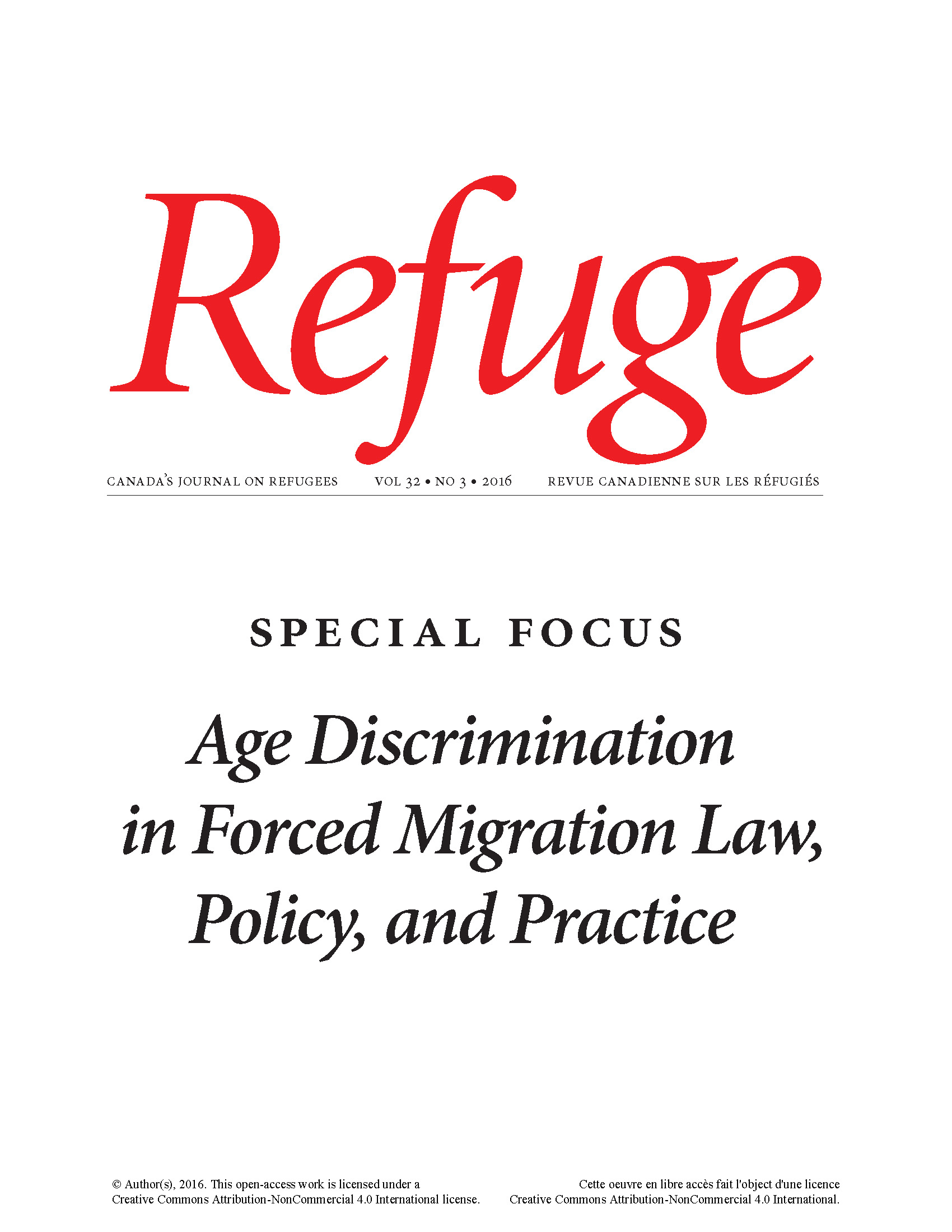Protection and Paternalism: Narratives of Nepali Women Migrants and the Gender Politics of Discriminatory Labour Migration Policy
DOI:
https://doi.org/10.25071/1920-7336.40339Keywords:
Nepal, gender discrimination, age discrimination, migration law, informal migration, illegality, paternalism, women migrants, ijaat, social honourAbstract
This article considers the current age and gender discriminatory migration laws in Nepal in their historical and sociocultural context. Drawing on eight months of fieldwork and data collected from both migrants and migration policymakers I ask, What are the consequences of discriminatory laws on young Nepali women’s migration experiences? And why do gender and age discriminatory laws and policies persist in light of evidence that they may actually endanger migrants? I posit that historically dominant Hindu gender norms provide the basis for the paternalistic migration laws currently in place. I argue that age and gender discriminatory migration policies are rooted in patriarchal concern for women’s ijaat (social honour) and sexual purity. The result of discriminatory law is not a reduction in migration but an increase in irregular and illegal migration that exacerbates women labour migrants’ vulnerability to a variety of abuses. I conclude that examining discriminatory migration laws with an intersectional lens raises interesting possibilities for theorizing how and why these ineffectual laws persist.
Metrics
Downloads
Additional Files
Published
How to Cite
Issue
Section
License
Copyright (c) 2016 Barbara Grossman-Thompson

This work is licensed under a Creative Commons Attribution-NonCommercial 4.0 International License.
Refuge authors retain the copyright over their work, and license it to the general public under the Creative Commons Attribution-Non Commercial License International (CC BY-NC 4.0). This license allows for non-commercial use, reproduction and adaption of the material in any medium or format, with proper attribution. For general information on Creative Commons licences, visit the Creative Commons site. For the CC BY-NC 4.0 license, review the human readable summary.







